Iran Will Force Dog Owners To Get Special Permit

Iran’s parliament is about to pass a law which will obligate anyone who wants to keep a dog as a pet to apply for a special permit from some special committees.

Iran’s parliament is about to pass a law which will obligate anyone who wants to keep a dog as a pet to apply for a special permit from some special committees.
Mojtaba Zonnour (Zolnour), a member of parliament’s foreign policy and national security committee, said on Saturday that if the so-called "Protection of public rights against dangerous animals" bill is approved, applicants for keeping dogs should request an official permit from the committees, which will be comprised of representatives of the prosecutor’s office and other government agencies such as the governors’ offices and municipalities.
The hardliner lawmaker added that these committees will review the conditions of the applicants to issue the necessary permits.
The representative of the religious city of Qom noted that the security and military apparatus of the Islamic Republic, including the police, the Intelligence Ministry and the Revolutionary Guards were involved in devising the outlines of this plan.
The parliament proposed the legislation late in 2021 by claiming a dog had killed children in a Tehran park. But in fact, the real reason for Iran’s conservatives is that keeping dogs is a symbol of Westernization, which they try to prevent. Although the bill names all kinds of pets, from dogs and cats to turtles, snakes, hamsters, rabbits and even crocodiles and monkeys, the main concern of parliamentarians is dogs, since dogs are considered impure in Islam.
Keeping dogs, always common in Iran’s rural areas and on farms, has only in recent years become popular in urban areas despite occasional police crackdowns.
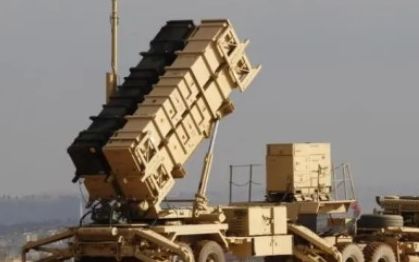
Tehran has warned regional Arab countries over a plan to launch an air defense system with the United States and Israel to confront Iran's missiles and drones.
Nour News, a website affiliated with the secretary of Iran's Supreme National Security Council (SNSC), Ali Shamkhani, said on Sunday that “the creation of a joint defense pact in the region by the US with participation and hidden management of Zionists is a threatening act.”
The United States said July 7 it is working to advance a partnership for air defense among Middle East allies to counter the growing missile threat from Iran.
Just before President Joe Biden’s trip to the region July 13, and his meeting with Saudi Arabia’s King Salman and visit to Israel, National Security Council Coordinator for Strategic Communications, John Kirby speaking of the Middle East said, “What happens over there definitely affects us here at home.”
The plan to set up coordination between air defenses of Saudi Arabia, Israel, the United Arab Emirates and other allies goes back months, as The Wall Street Journal reported in June that a secret meeting took place between top military officers of the countries involved in Sharm El Sheikh, Egypt in March.
Representatives came from Israel, Saudi Arabia, Egypt, Qatar and Jordan.
“If the implementation of such plans threatens the security of Iran in any way, it will face initial decisive response to the nearest and most accessible targets,” it tweeted.
Late on Saturday, Iran’s Foreign Ministry spokesman also said the plan to establish the integrated air defense system was provocative and “the Islamic Republic of Iran considers it a threat to its own national security as well as regional security.”
"The US comes up with such ideas without having a correct understanding of the region’s realities, and only with the purpose of fueling Iranophobia and creating division among the regional countries," said Naser Kanani.
Iran has been calling the United States the ‘great Satan’ and ‘world arrogance’ since the establishment of the Islamic Republic in 1979 and has skipped many opportunities to re-establish diplomatic ties after they were broken in 1980 when its followers took dozens of American embassy workers hostage in Tehran.
The foreign ministry spokesman added that “Any measure to pave the way for the increased presence and role of the United States in regional security mechanisms will have no other outcome but insecurity, instability, and spread of terrorism across the region.”
The US and Israel are laying the groundwork with Arab states to use Israeli technology to connect their air defense systems to combat Iranian drone and missile threats.
Early in June, the US Senate and House Abraham Accords Caucus unveiled a bipartisan, bicameral effort as a united front against what it said is Iranian aggression in the Middle East.
The legislation proposes that the Pentagon work with Israel to integrate air defenses of six GCC countries of Bahrain, Kuwait, Oman, Qatar, Saudi Arabia, and the United Arab Emirates with Egypt, Jordan, and Iraq with the aim of thwarting threats from Iran and Iranian backed-militias across the region.
The Deterring Enemy Forces and Enabling National Defenses (DEFEND) Act is a joint effort by Congress to develop a strategy for signatories of the Abraham Accords and other countries to combat Iranian destabilizing activities threatening peace and security in the Middle East.
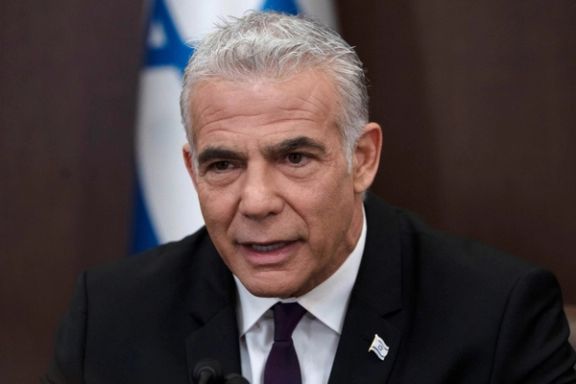
Israeli Prime Minister Yair Lapid said on Sunday that Iran’s nuclear case should return to the UN Security Council and sanctions mechanisms should be activated at full force.
At a weekly Cabinet meeting, Lapid said, “Yesterday, it was revealed that Iran is enriching uranium in advanced centrifuges in complete contravention of the agreements it has signed. The international response needs to be decisive.”
He also reiterated that “Israel reserves political and military freedom of action in fighting the Iranian nuclear program.”
Appealing to Middle Eastern Sunni Muslim countries to engage in steps of rapprochement with Israel, he said, "Israel extends a hand to the countries of the region and calls to change history for the sake of our children.”
About President Joe Biden’s upcoming visit to Jerusalem, slated for Wednesday, Lapid said it “will focus first and foremost on the issue of Iran.” “Israel will not stand idly by while Iran tries to attack us. Our security services know how to reach anyone, anywhere -- and they will do just that. We will discuss with the president and his team expanding security cooperation against all threats.”
Biden’s tour to the Middle East also includes a stop in Saudi Arabia, which is reportedly considering a joint three-way meeting with the United States and Israel either during or after Biden's visit.
The White House’s National Security Council spokesman John Kirby said on Thursday “greater collaboration” on issues such as air defense, particularly with regards to countering Tehran, would be also on Biden’s agenda.
The US and Israel are seeking to lay the groundwork for a security alliance with Arab states that would use Israeli technology to connect their air defense systems to combat Iranian drone and missile threats.
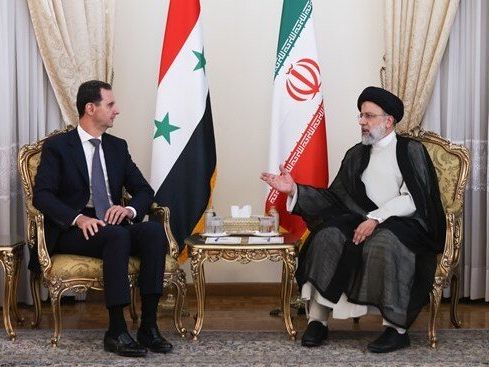
Iranian President Ebrahim Raisi has reassured his Syrian counterpart that the Islamic Republic will continue its support for the ‘Resistance Front’, especially Syria.
In a phone call with Bashar al-Assad on Saturday evening on the occasion of Eid al-Adha, Raisi reiterated Tehran’s support for “the axis of resistance.” The terms "resistance front" or “axis of resistance” are coined by the Islamic Republic to describe its allies and proxies throughout the region.
Raisi also said that Tehran supports the establishment of peace and stability in Syria and opposes any foreign intervention in the country.
According to Iranian media’s readout of the phone call, Assad said that "the enemies are getting weaker day by day against the axis of resistance,” noting that Iran and Syria are on the same front.
In recent years, Iran bought large tracts of land close to the Syrian Israeli border and is settling Shiites to threaten Israel, taking advantage of a destructive civil war in Syria and the ensuing poverty, as well as migrations.
Many young people in these areas, very close to Israel, are now members of Iranian-backed militia groups, such as Hezbollah or the Afghan Fatemiyoun Brigade.
These forces have been fighting under the Revolutionary Guard’s command for almost a decade in Syria to keep Assad in power, and when the war turned against rebels, the Iranian military moved closer to the Israeli border.
Some countries in the region, notably Jordan, are concerned about Iran and its proxies filling a vacuum left by Russians in southern Syria.
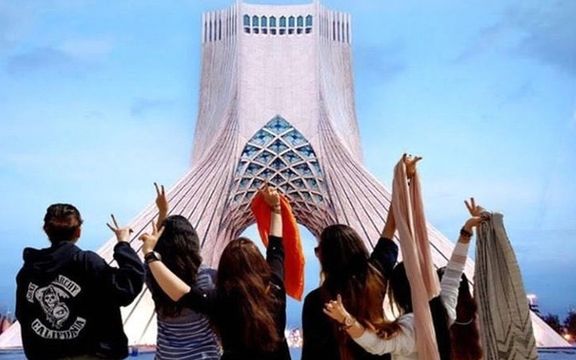
Authorities in Iran are harshly cracking down on ‘bad-hijab women’ and will hold a ‘hijab rally’ on Tuesday, but women activists have their own plans to protest.
President Ebrahim Raisi on Wednesday called lack of compliance with hijab rules “an organized promotion of [moral] corruption in Islamic society” and ordered all government entities to strictly implement a “chastity and hijab” law drawn in 2005 by the Supreme Council of the Cultural Revolution.
Authorities have also launched an extensive campaign this year against women they call ‘bad-hijab’. In addition to crackdowns by the ‘morality police’ on the streets, some officials have ordered extra measures, including to government offices, banks, and public transportation authorities to withhold service to ‘bad-hijab’ women.
In the past few weeks authorities have also shut down some businesses such as cafes and restaurants and detained their female patrons for ‘improper hijab’ and arrested nature tourists for flouting their hijab, dancing, and drinking in the depths of northern forests.
In the jargon of religious and political hardliners women who are unwilling to wear the hijab and display their displeasure by wearing small and colorful headscarves with tight-fitting, short dresses are called ‘bad-hijab’ ones.
Meanwhile, authorities this year named the 12th of July as Hijab and Chastity Day and are planning rallies at stadiums and other places to honor, celebrate, and promote the Islamic notion of the hijab (cover) for women.
But women’s rights activists say forcing women to follow a certain dress code is a violation of their human rights. In response to the government’s plans, they have called on women to action against compulsory hijab on July 12, to drop their headscarves in the streets and other public places. The campaign has been dubbed as the ‘NO2Hijab’ campaign.

Activists are also urging men to support the women’s movement by accompanying their wives and daughters on the street when they protest or by posting videos on social media.
Mehdi Hajati, a political activist, in a tweet Tuesday supported the ‘No2Hijab’ movement. The movement is driven by those who are demeaned by the hijab rules and will succeed if protests continue. “Those [who try to enforce hijab rules] will eventually be exhausted [by our protests],” he wrote. Hajati, a former member of Shiraz City Council was expelled from the council in 2018 and was arrested for speaking out against the arrests of two members of the persecuted Baha’i minority.
The anti-hijab social media campaign has once again been spearheaded by US-based activist Masih Alinejad who has been behind several social media campaigns against compulsory hijab over the past decade.
“Many of us remember this fear when we got arrested for the first time by morality police. No other government in the world— not even North Korea—terrorizes women because their hair is showing. The Islamic Republic of Iran is a gender apartheid state,” Alinejad tweeted Friday with a photo of two women in a ‘morality police’ van crying out in horror.
In 2012 Alinejad launched the “Stealthy Freedoms” campaign, which invited women to share photographs of themselves without the hijab. She continued her campaign with “White Wednesdays” in 2017 which encouraged women to wear white headscarves or take them off in protest at the rules every Wednesday. Both campaigns became quite popular on social media.
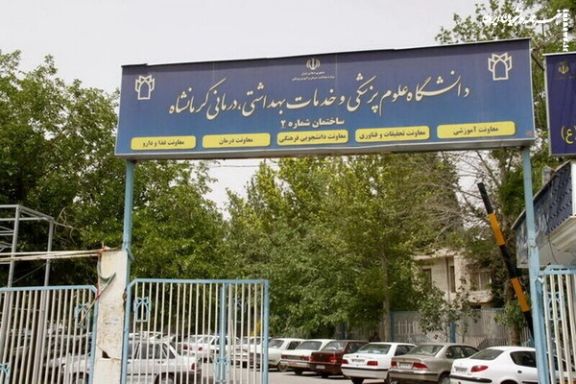
Several Iranian university professors have been sacked over participating in the graduation ceremony of their students because some people danced in the celebrations.
According to the United States-based Human Rights Activists' News Agency (HRANA) on Saturday, seven professors of the medical university of Kermanshah were fired over "boys' and girls’ mixed Kurdish dance" and "loose hijab" during the graduation ceremony of pharmacology students, which was held early in June.
Following the release of a video of the soiree on social media, the public relations office of this university denounced the event as "breaking red lines" and claimed that this ceremony was held without any permit.
In a statement, the union council of the pharmacology faculty denied that these professors danced in the ceremony or were even there during the local dance, noting that the ceremony was authorized.
The statement claimed that after the official end of the graduation ceremony, the professors left and only the families of the students were present when they celebrated with a brief Kurdish dance as is customary in Kurdish festivities.
Islamic laws in Iran forbid dancing, although many people dance during family gatherings in their homes.
Iran’s hardliner president has recently ordered all government entities to strictly implement a “chastity and hijab” law after weeks of stricter measures on the streets.